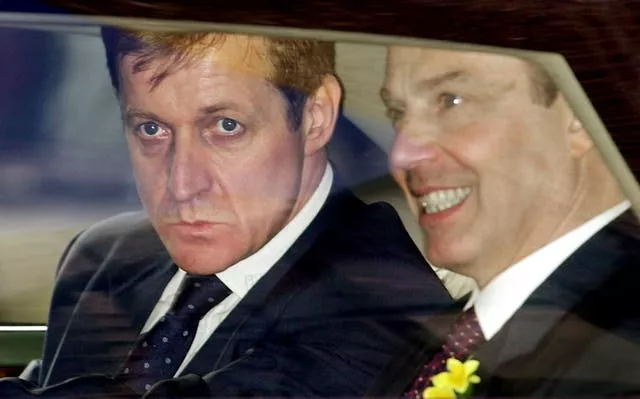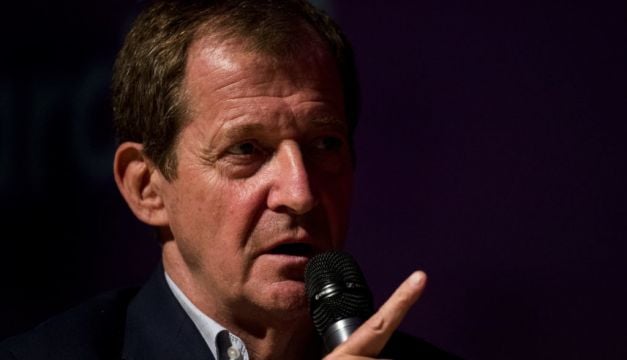The British government’s attitude to the Irish “returned a little to repellent” during Brexit, one of Tony Blair’s former top aides has said.
Alastair Campbell slammed an “almost arrogance” on the part of the current Conservative government towards Northern Ireland.
He was speaking on Tánaiste Micheál Martin’s In Conservation With podcast.
The Tánaiste said that from an Irish perspective, the relationship with the British government “went up a level” when Tony Blair’s Labour swept into power in 1997, and “to a certain extent hasn’t been repeated”.
“It just went up a level in terms of trust, in terms of working together genuinely and learning and sharing experiences, it was a very, very warm relationship that did impact positively,” he said.
Mr Campbell said it “saddens” him “the extent to which” in the Brexit debate, Northern Ireland was “not even considered”.
“There’s an arrogance about the current government in its attitudes to Ireland that there used to be when I was a journalist,” he said.

Mr Campbell, who worked in journalism in the 1980s and 1990s, said he felt there was an arrogance during former prime minister Margaret Thatcher’s term.
“There was an arrogance, there was an attitude towards the Irish that was really quite repellent, and that went and I think a little of it has come back again,” he said.
“The extent to which, particularly during the Brexit negotiations, stuff was happening that had a direct impact upon you guys, and I don’t think it even figured in the thinking a lot of the time.”
The Tánaiste responded: “Which gave rise to all the issues around the [Northern Ireland] Protocol and where we are today, and also the bit I’ve always been taken aback by was the absence of any due diligence over the impact on SMEs, small businesses, supply chains.
“It’s a huge imposition on a lot of ordinary small to medium-size businesses that I don’t think was factored in.”
He added: “To be fair, I think [prime minister] Rishi Sunak has brought a degree of professionalism to Britain.”
The pair also discussed rioting seen in Dublin last Thursday night following a stabbing attack which saw a woman and three children taken to hospital.
Mr Martin described the incident as an “appalling, horrific attack on three young children and their carer”, followed by rioting and attacks on gardaí, co-ordinated on social media.
He expressed concern about the “hate and bile” in social-media messaging, directed against foreigners and the Government.

Mr Campbell said he was genuinely shocked by the scenes in Dublin.
He commended Garda Commissioner Drew Harris for “absolutely calling them out” in reference to his assertion of the involvement of “far-right elements”.
Mr Campbell has published a new book called What Can I Do, about the growth of populism, polarisation and the nature of public discourse.
“We are now in this world where if you combine the disenchantment that a lot of people have with their own lives, the desire to find people to blame for that, be that politicians, be that immigrants, be that anybody that they can say is not one of us, allied to the speed at which rumour can fly, conspiracies can fly and it’s very, very hard to contain when it kicks off,” he said.
Referring to the rise of right-wing politicians in countries including the Netherlands and Argentina, Mr Campbell added: “What all of these things signal is we haven’t got on top of this populist, polarising virus, and we’ve got to find ways of addressing the issues, but at the same time we’ve got to find ways of restoring people’s sense or at least a modicum of trust in institutions of trust in politicians.”







